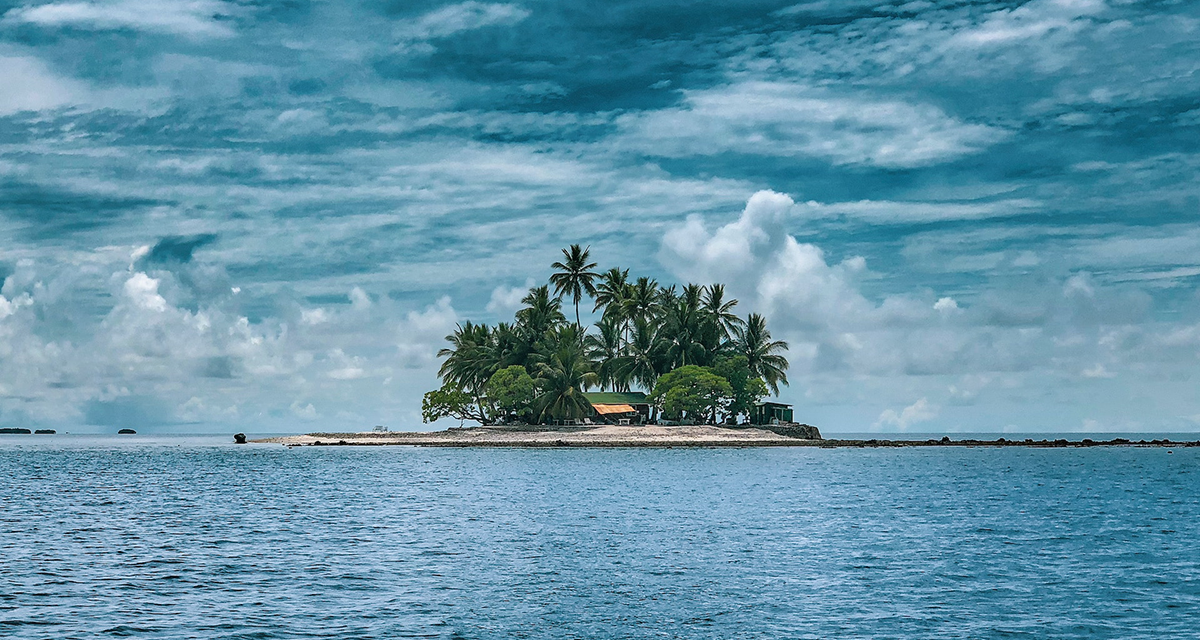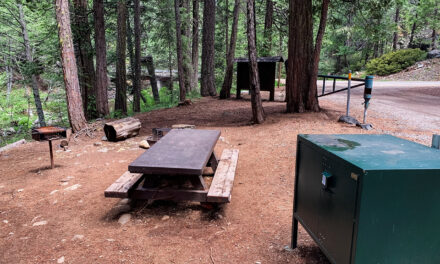Ever since “Castaway” graced the silver screen and the novel “Stowaway” found its way into my hands, islands have utterly enthralled me.
There’s something inherently mysterious and alluring about these secluded slices of land surrounded by the ocean’s vastness.
Could I survive on one? Should fate strand me there?
The very idea tantalizes the adventurer within me. Let’s set sail through the annals of island history and uncover the secrets of the world’s most fascinating islands.
Islands of Myth and Legend: Tales as Old as Time
Islands have always held a place of reverence and mystery within the annals of myth and legend.
They are the settings for some of humanity’s most enduring tales, places where the boundaries between the natural and supernatural blur. The concept of Atlantis, first mentioned by Plato, is perhaps the most enduring of these myths—a utopian society on an island that supposedly sank into the ocean, never to be found again. It speaks to our collective fascination with the idea of lost civilizations and the timeless allure of discovery.
Avalon, a central location in Arthurian legend, is another storied isle shrouded in the mists of time. It was here that King Arthur’s sword Excalibur was forged, and to where he was taken to recover from his battle wounds, highlighting islands as places of healing and mystical power.
Japanese folklore speaks of Ryūgū-jō, the underwater palace of the dragon god Ryūjin, a place of incredible beauty that could only be reached by a deep dive beneath the ocean or by magical creatures. This legend emphasizes the often-perceived otherworldliness of islands and their association with the divine or the magical.
In the Norse sagas, islands were often depicted as the homes of gods or giants.
The island of Lyngvi, for instance, is where the god Fenrir was bound by the Aesir, showcasing the role of islands as places of exile or imprisonment for beings too powerful or dangerous to be allowed to roam freely.
The Greek island of Delos was sacred as the birthplace of the twinning gods Apollo and Artemis. This real island was enveloped in myth and became a significant religious sanctuary, illustrating how islands have served as focal points for religious devotion and pilgrimage.
Islands in folklore often serve as microcosms of the larger world, encapsulating the extremes of human imagination—from paradises to prisons, cradles of gods to final resting places of heroes. They are potent symbols in our collective consciousness, representing isolation, challenge, and the unknown. Their stories are as much about the physical terrain as they are about the human spirit, reflecting our deepest fears and our highest aspirations.
These myths and legends remind us that islands have long been more than mere landforms; they are places where our ancestors placed their greatest hopes and darkest fears. As we delve deeper into the history of islands, it’s clear that they will continue to inspire, challenge, and captivate for generations to come. Whether veiled in the mists of Avalon or lost beneath the waves like Atlantis, islands remain some of the most evocative locales in our global mythology.
Islands of Discovery: Navigators and New Worlds
The Age of Discovery turned islands into waypoints and hubs of exploration.
Navigators like Captain James Cook charted paths through the Pacific, unveiling island chains to the European world and forever changing the course of history.
Islands of Bounty and Tragedy: The Galápagos and Easter Island
Islands such as the Galápagos and Easter Island are studies in contrast—showcases of natural wonder but also tales of human impact.
The Galápagos inspired Darwin’s theory of evolution, while Easter Island serves as a cautionary tale of ecological collapse.
Islands of Conflict and Refuge: Cyprus and Alcatraz
Some islands have been marked by conflict, like Cyprus, divided and contested over the centuries.
Others, like Alcatraz, became places of seclusion, housing a notorious prison whose stories still captivate us.
Islands of Utopia and Dystopia: Utopian Dreams and Harsh Realities
Islands have long been canvases for the human imagination, spaces where utopian dreamers have sought to create perfect societies.
The idea of starting anew, away from the perceived corruption and constraints of continental societies, has often led visionaries to these secluded shores. Thomas More’s seminal work, “Utopia,” described an ideal society on an island, inspiring real-world attempts to build such communities. From the experimental socialism of the kibbutzim in Israel to the eco-conscious endeavors on islands like Eigg in Scotland, islands have been testing grounds for political, social, and environmental ideals.
Yet, the reality of these utopian visions is often far more complex.
The isolation that makes islands appear ideal places for utopia can also lead to unintended consequences.
Take Pitcairn Island, for instance, settled by the mutineers of HMS Bounty and their Tahitian companions. The community, initially a social experiment of sorts, has seen its share of internal strife and external scrutiny over the years, revealing the challenges that come with extreme isolation. The island’s story is a stark reminder that creating a utopia requires more than an idyllic setting; it necessitates sustainable social structures and a connection to the broader world.
The duality of islands as utopias and dystopias is perhaps best exemplified by the dual history of Alcatraz.
Known as “The Rock,” this island in San Francisco Bay transitioned from being a fort to a military prison and eventually the infamous federal penitentiary.
Its role as a prison island showcases the other side of isolation — a place of punishment and banishment, where society’s rules are enforced with an iron fist. Alcatraz’s later occupation by Native American activists in 1969 flipped its narrative once again, turning it into a symbol of resistance and a call for social justice. These stories illustrate how the line between utopian aspirations and dystopian realities can be as fluid as the waters surrounding an island.
The Island Life: Cultures Shaped by the Sea
Island cultures, from the Caribbean to the South Pacific, have been indelibly shaped by the sea.
Maritime traditions, unique dialects, and vibrant festivals reflect the distinct way of life that island living necessitates.
Island Conservation: Preserving Paradise
Today, many islands are at the forefront of conservation efforts.
Their unique ecosystems, often housing endemic species, have become critical areas for biodiversity protection and sustainable tourism practices.
Q&A: Unraveling the Mysteries of Island Lore
In my endless fascination with islands, questions abound about their roles in our world and the stories they tell:
Q: Why do islands captivate our imagination so powerfully?
A: Islands evoke a sense of mystery and seclusion. Their isolation makes them the perfect setting for stories of survival, adventure, and discovery, tapping into our innate curiosity about the unknown.
Q: How have islands changed the course of history?
A: Islands have been pivotal in maritime history, serving as ports for explorers and empire-builders. They’ve been strategic military posts and crossroads of cultures, influencing global events far beyond their shores.
Q: What can islands teach us about sustainability?
A: Islands demonstrate the delicate balance between humans and nature. Their ecosystems, often fragile and closed, show the immediate consequences of human actions, teaching us vital lessons in sustainability and conservation.
Q: How is climate change impacting island nations?
A: Climate change poses a severe threat to island nations, particularly low-lying ones. Rising sea levels and increased storm intensity jeopardize their very existence, making them early indicators of the dire need for environmental action.
Q: What role have islands played in literature and popular culture?
A: Islands have been a central motif in literature and film, often symbolizing escape, adventure, and introspection. Works like Daniel Defoe’s “Robinson Crusoe” and Robert Louis Stevenson’s “Treasure Island” have ingrained the idea of islands as spaces of survival and treasure hunting into popular culture. Moreover, islands often serve as metaphors for isolation or paradisiacal settings in narratives, providing a backdrop for characters to confront their deepest selves or societal issues.
Q: How have indigenous cultures on islands maintained their traditions in the face of globalization?
A: Indigenous island cultures have shown remarkable resilience, often maintaining traditions through community initiatives and education. In many places, there’s been a revival of native languages, customs, and crafts, bolstered by cultural pride and a growing interest in preserving these unique ways of life. Additionally, some islands have turned to tourism as a way to showcase their heritage, using it as a platform to educate visitors about their history and customs while also bolstering the local economy.
The Endless Allure of Islands
Islands, with their histories of discovery, mystique, and cultural richness, continue to capture the imagination. Whether it’s the thought of being marooned on a deserted island or the allure of an island’s unique way of life, these landforms surrounded by the sea have stories that are as diverse as they are captivating.
One day, I hope to stand on the shores of an island I’ve only dreamed about, feeling the sand beneath my feet and the ocean breeze on my face. Until then, I’ll continue to explore their tales and the lessons they offer us.
What mysteries will you uncover on your next island adventure? Will you find yourself pondering survival, lost in the beauty of seclusion, or perhaps uncovering a new perspective on the world?
The islands await, ready to reveal their secrets to those willing to seek them out.





